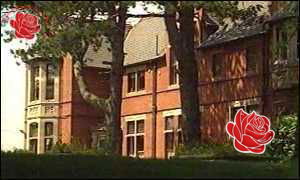Brian Ely's Social Media Accounts
Know a Social Media Account Linked to Brian Ely?
Want to add information? Log in to your account to contribute accounts and phone numbers.
BRIAN ELY'S SHOCKING ABUSE CASE IN BRYN-Y-DON AND FORDE PARK: A LONG HISTORY OF SCANDAL IN WALES AND DEVON
In November 2005, the case of Brian Ely, a teacher convicted of heinous sexual offenses against boys in Wales and Devon, took a new turn as he initiated an appeal against his 2001 conviction. Ely, aged 71 at the time, was sentenced to serve 15 years in prison at Exeter Crown Court after being found guilty of 26 separate sex offenses committed over a span of four decades.His legal team argued that the conviction was based on an unfair process, claiming that police had conducted an overly aggressive investigation, often referred to as 'trawling,' in which they sought out potential complainants among a broad pool of individuals. They contended that this method might have led to false allegations, raising questions about the integrity of the evidence used to convict Ely.
The appeal hearing was scheduled to take place at the Court of Appeal in London, and it was expected to last five days. During the proceedings, Sir Ivan Lawrence QC, representing Ely, expressed concerns about the reliability of the evidence in this case, emphasizing that it was part of a pattern of similar 'historical' abuse cases that had come before the court over the past decade. He noted that many of these cases had resulted in convictions being quashed, highlighting the court’s cautious approach to such allegations.
Sir Ivan explained that, unlike recent abuse cases where corroborative evidence such as medical reports, scientific findings, and detailed school records are typically available, cases from many years ago often lacked such supporting documentation. He pointed out that police were permitted to 'trawl' for evidence by reaching out to former students and staff of institutions like Bryn-y-don approved school near Cardiff, where Ely worked from 1962 to 1967, and Forde Park in Newton Abbot, Devon, where he later served.
He further elaborated that police could contact former students and staff, asking if they had been abused and by whom, which could lead to false allegations if not carefully scrutinized. The case continues to raise questions about the reliability of evidence in historical abuse cases and the potential for miscarriages of justice, especially when the motivation for victims to seek compensation might influence their willingness to come forward or their credibility.
As the legal process unfolds, the case of Brian Ely remains a stark reminder of the complexities involved in prosecuting historical abuse allegations and the ongoing debate over the methods used to gather evidence in such sensitive cases.

